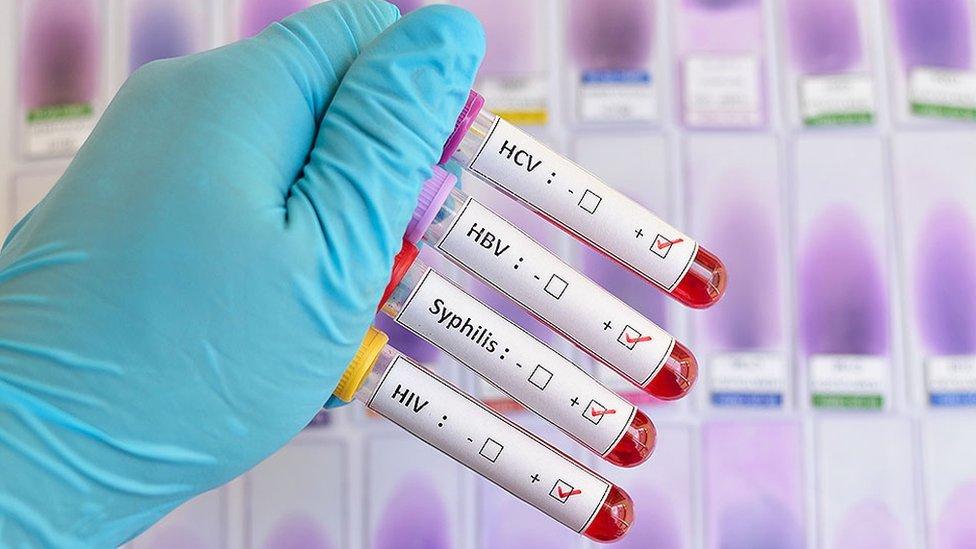Sexually transmitted infections fall during pandemic
- Published

Cases of newly diagnosed sexually transmitted infections (STIs) are down by a third in England, data reveals.
Experts say the drop is partly due to people changing their behaviour during the pandemic but also because fewer tests have been done.
With few Covid restrictions remaining, people are now being warned not to swap social distancing for an STI - and to get checked if they have risky sex.
STIs may be symptomless but can be avoided by using condoms.
Genital warts
Nearly 318,000 STIs were recorded in 2020 compared with 467,096 in 2019, the latest figures show.
Public Health England said infections requiring an in-person assessment, such as genital warts or herpes, saw a greater drop in diagnoses.
But cases of chlamydia and gonorrhoea - which can be diagnosed with self-sampling kits - were also down.
Compared with 2019:
consultations at sexual-health services decreased by 10%.
face-to-face consultations fell by 35% - but internet consultations doubled
As in recent years, the highest rates of new STIs were recorded among people who were:
aged 15-24
black
men who have sex with men
Debbie Laycock, from the Terrence Higgins Trust, said the drop in new cases was good news but rates could creep up again.
"Sexually transmitted infections are still circulating," she said.
"That means it's as important as ever to regularly test for STIs if you're having sex and for everyone to know that sexual-health services are open for business - both face-to-face and online."
Public Health England sexually transmitted infections section head Dr Katy Sinka said: "If you are having sex with new or casual partners, use a condom and get tested - STIs can pose serious consequences to your own health and that of your current or future sexual partners."
Related topics
- Published6 May 2020
